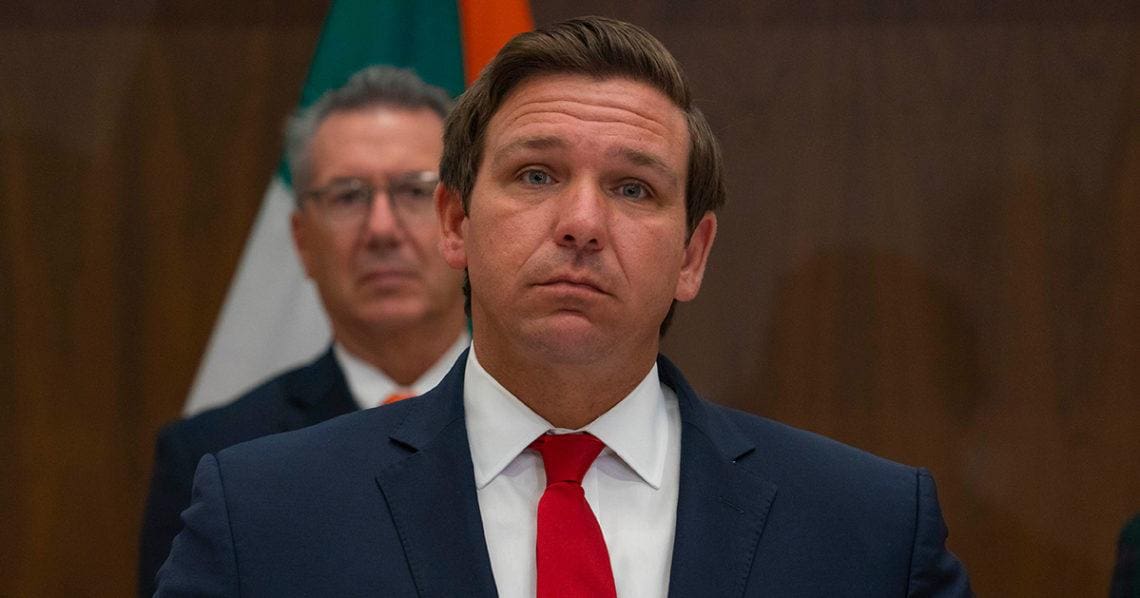As federal rulemakers continue to shape guidance around ESG, corporate leaders have eagerly awaited the hint of clarity the rules are expected to bring. Too bad there’s the small matter of state lawmakers. ESG columnist John Peiserich sets the stage for the upcoming clash between federal and state rules.
A major challenge for companies today is balancing the demands of investors and consumers against a shifting political backdrop at both the state and federal levels. This challenge is expected to come into even sharper focus next month when the U.S. Department of Labor plans to formally issue ESG-related rules.
In October 2021, the department published a notice of proposed rulemaking, which received almost 1,000 comments within the public comment period. Not only does the proposed rule allow consideration of ESG factors in investment decisions for Employee Retirement Income Security Act (ERISA) plans, “a fiduciary’s duty of prudence may often require an evaluation of the economic effects of climate change and other ESG factors on the particular investment or investment course of action.”
Examples from the fact sheet include:
- Climate-change related factors, such as a corporation’s exposure to the physical and transitional risks of climate change and the positive or negative effect of government regulations and policies to mitigate climate change.
- Governance factors, such as those involving board composition, executive compensation and transparency and accountability in corporate decision-making, as well as a corporation’s avoidance of criminal liability and compliance with labor, employment, environmental, tax and other applicable laws and regulations.
- Workforce practices, including the corporation’s progress on workforce diversity, inclusion, and other drivers of employee hiring, promotion, and retention; its investment in training to develop its workforce’s skill; equal employment opportunity; and labor relations.
However, at the state level, conflicts abound.
Florida Gov. Ron DeSantis passed a resolution eliminating ESG considerations from state pension investments. DeSantis has also proposed legislation for the 2023 legislative session that will include amending Florida’s Deceptive Trade Practices statute to effectively eliminate ESG scoring as a factor in financial institution decision-making. Conversely, New York has taken the opposite approach.
On the other hand, New York’s State Common Retirement Fund must transition its portfolio to net zero emissions, apply minimum standards for climate action, develop evaluation tools for ESG and formally integrate climate risk assessment into the investment process.
As we await the SEC’s final decision on climate disclosures, companies will continue to gather and report data related to environment, social and governance programs. ESG columnist John Peiserich explores the main drivers of pre-regulatory ESG reporting.
ESG Data Is Becoming the Coin of the Corporate Realm
Conflicts also exist internally within states. The Teacher Retirement System of Texas, for example, has announced the following policy:
“Environmental, social and governance (ESG) factors influence the performance of TRS’s investments. In making investment decisions, the investment division will consider ESG factors that are material to long-term returns and levels of risk. Materiality of specific ESG factors vary across strategies, companies, sectors, geographies and asset classes.”
However, the Texas Legislature also passed the Oil and Gas Investment Protection Act last year, which prohibits state entities, including pension funds, from investing in companies that boycott the oil and gas industry. The public accounts comptroller maintains a list of such companies and those companies are excluded from working with the state of Texas.
In addition to the high variability of guidance companies are receiving, there is now an ever-increasing trend in commentary and investigation by states into corporate ESG activities, which often pits states against each other. In August, the attorneys general of New York, California, Delaware, Illinois, Maryland, Minnesota and New Jersey filed comments in support of the SEC-proposed ESG rulemaking, while West Virginia Attorney General Patrick Morrisey, joined by 20 other attorneys general, filed comments in opposition. The next day, Missouri Attorney General Eric Schmitt, joined by 18 other attorneys general, announced an investigation into Morningstar and its subsidiary Sustainalytics over ESG data and the companies’ association with movements to boycott Israel.
Conclusion
These conflicts are problematic for companies who are trying to navigate the tumultuous ESG waters. A good corporate citizen in one locale may well be identified as “undesirable” in another. These conflicts raise the overall risk profile for companies and investors and open windows, not only for governmental action but also for litigation, as changes such as those to the Florida Deceptive Trade Practices Act present a previously nonexistent risk.




 John Peiserich is a senior vice president in J.S. Held’s Environmental, Health & Safety — Risk & Compliance group. With over 30 years of experience, John provides consulting and expert services for heavy industry and law firms throughout the country with a focus on oil and gas, energy and public utilities. He has extensive experience evaluating risk associated with potential and ongoing compliance obligations, developing strategies around those obligations, and working to implement a client-focused compliance strategy. He has appointments as an independent monitor through EPA’s Suspension and Debarment Program. John routinely supports clients in a forward-facing role for rulemaking and legislative issues involving energy, environmental, oil and gas, and related issues.
John Peiserich is a senior vice president in J.S. Held’s Environmental, Health & Safety — Risk & Compliance group. With over 30 years of experience, John provides consulting and expert services for heavy industry and law firms throughout the country with a focus on oil and gas, energy and public utilities. He has extensive experience evaluating risk associated with potential and ongoing compliance obligations, developing strategies around those obligations, and working to implement a client-focused compliance strategy. He has appointments as an independent monitor through EPA’s Suspension and Debarment Program. John routinely supports clients in a forward-facing role for rulemaking and legislative issues involving energy, environmental, oil and gas, and related issues.










